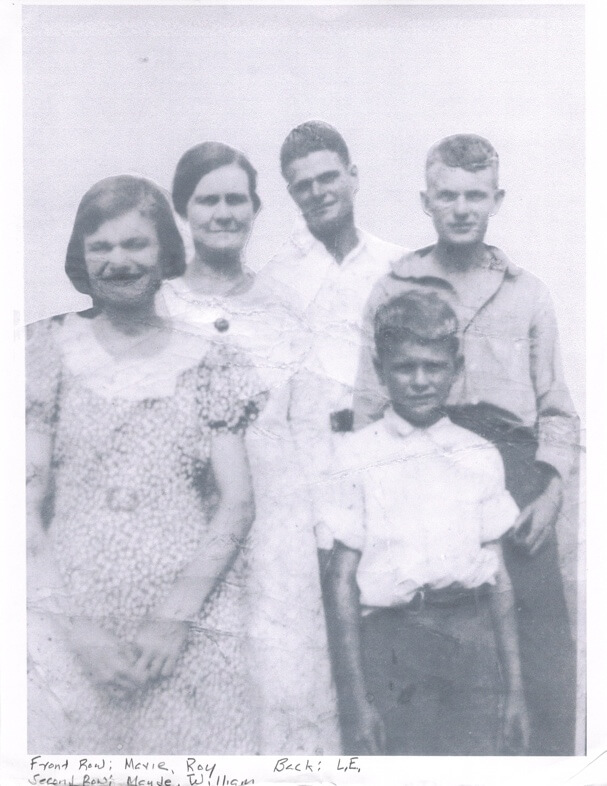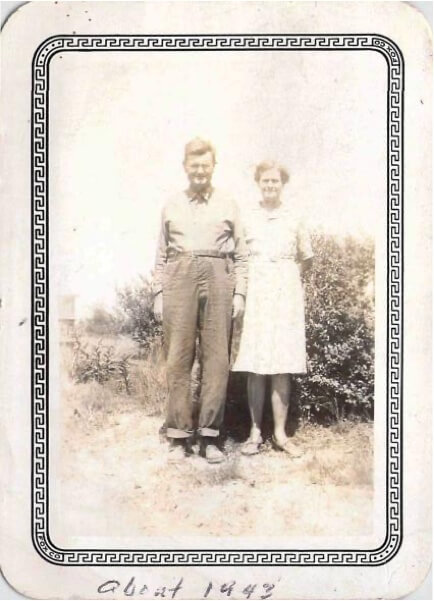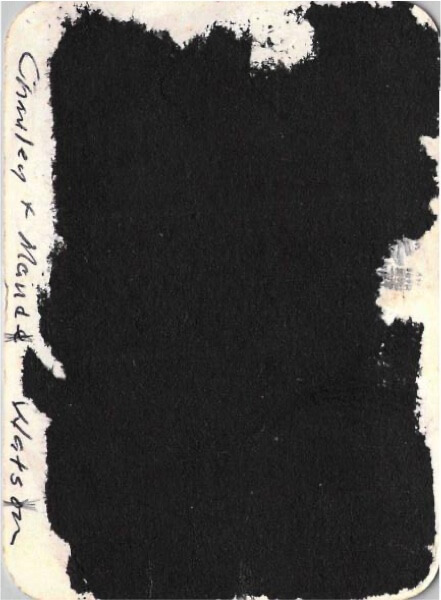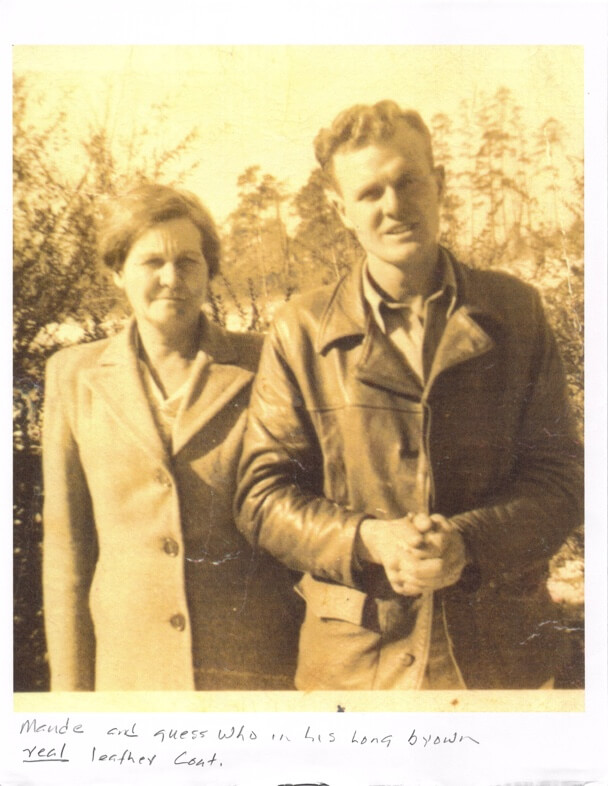The Watsons

Second row: Maude, William
Back: LE
After World War I in about 1919, Eli Jasper Watson, Jr’s. widow and two of his married children and their families moved from Kilmichael, Miss. to the Mississippi Delta to grow cotton. A Mr. Young and Mr. Will Morrow of Winona, Miss. had acquired a tract of virgin Delta land near Ruleville, Miss. Grandma Lynn and two of her unmarried children, Walter and Emma, constituted one family. Her son Charley, his wife Maude, and children Marie, Luther Ely (L.E.), and William constituted another family. Another son Bob and his new bride, Leona Brooks Watson, constituted the third and final family. They all moved to the Young and Morrow Deadening. A deadening is a tract of land wherein the trees have been killed. The trees were ringed with an axe. Then a homemade liquid poison consisting of a mixture of arsenic, lye, and kerosene was poured into the axe-made gash to kill the trees roots and all.


about 1943
The three Watson Families rented railroad boxcars and shipped their household goods, farm implements, horses and mules, milk cows, grain, and everything needed to sustain life and conduct cotton farming from Kilmichael to the Young and Morrow Deadening. The farming was difficult. Even though the tree poison did its work the ground was replete with rotting roots and stumps for a few years. In other words, it was new ground with all its roughness.
The Watsons’ did fairly well. The cotton prices were at 60 to 80 cents per pound the first fall. In 1920 the talk in the spring was of cotton going to one dollar a pound. Buyers from Memphis rode the turn rows while cotton was being planted offering to contract at 85 to 90 cents. The Watsons’ and others who did not, sold their cotton at 10 cents a pound. The Watsons’ continued to grow cotton despite the disappointment in prices.
One day in 1923, Bob began to complain of his stomach paining him. Leona his wife, prepared for him and he took several doses of bicarbonate of soda in water for relief. It did not work. He went to a doctor. The doctor recognized his problem as appendicitis and prescribed that he go to Memphis to the hospital immediately. He boarded the earliest train to Memphis. Unfortunately, on the way, on the train the appendix burst. He reached the hospital alive. One must understand that the methods of dealing with peritonitis was not very effective in those days. Bob had survived the ‘German War’ and the trenches in France, but despite his young, strong constitution he couldn’t beat the gangrene. He died in a few days. His wife, Leona, never stopped berating herself for giving him the soda water and not getting him to the doctor earlier.

Grandma Lynn, Walter, Emma, and Leona returned to Kilmichael and the homeplace shortly thereafter, but Charley and his family remained in the Delta for several more years. Charley and family moved to Rome, Miss. and leased a farm from Lady Harris for cash. It was a sizable piece of property lying about one mile south-southeast of Rome. Lady Harris was Dr. Harris’ widow. Charley called her ‘Ole Lady Harris’ and if she had another name, I never heard it spoken. Charley and family enjoyed a measure of prosperity. In 1924 he bought his first farm tractor, a Fordson, and an Oliver double-gang pull-type disc. In 1925 he bought his first car, a Star. It was a four door touring sedan. Dealers were out of Model T Fords so he bought the higher priced Star. It was equipped with a four cylinder Continental engine, a conventional clutch, four wheel brakes, and a three speed transmission. The controls consisted of conventional brake and clutch floor pedals, a stick shift in the floor. The driving, unlike the Model T, was like the driving of a modern car with standard transmission. Also in 1925 on the Harris Place a new son, Roy, was born.
The farming year of 1926 was to be Charley’s last in the Mississippi Delta. In the early spring of 1927, the family moved to a farm about five miles south of Kilmichael near the Eli Jasper Watson, Jr. estate where Grandma Lynn and the family had returned. Charley loved to boast that the big flood of 1927 did not run him out of the Delta, but that he had decided to leave well before the threat of flooding. It was a lucky decision.
Charley had gone to the Delta with one pair of mules and the minimum of walk behind plowstocks. The entire family worked very hard. The small children, especially Marie and L.E., worked in the fields hoeing and picking cotton. William did have a couple of years of work there at a very young age. The rows of cotton were very long and the seasons of hoeing and picking stretched over many months of the year. When the family returned not only had a tractor and implements, and a car been acquired; but so had a half-dozen or more mules and/or horses, a walking cultivator, a riding cultivator, several double shovel plows, and much other equipment. The years in the Delta had been a time of accumulating a little cash and the equipment to do semi-power farming back in the hills.
This was written by Roy C. Watson on July 12, 1986.